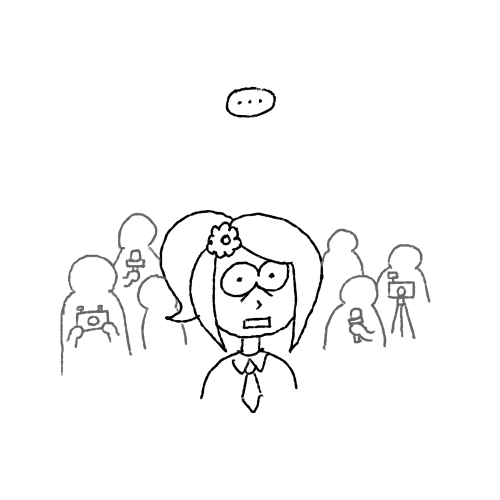Fucked Up In The Crib Watching Youtube Poops Inside Payday 2
fucked up in the crib watching youtube poops inside payday 2

More Posts from Smallconsciousness and Others
I'm a big fan of wizards-as-programmers, but I think it's so much better when you lean into programming tropes.
A spell the wizard uses to light the group's campfire has an error somewhere in its depths, and sometimes it doesn't work at all. The wizard spends a lot of his time trying to track down the exact conditions that cause the failure.
The wizard is attempting to create a new spell that marries two older spells together, but while they were both written within the context of Zephyrus the Starweaver's foundational work, they each used a slightly different version, and untangling the collisions make a short project take months of work.
The wizard has grown too comfortable reusing old spells, and in particular, his teleportation spell keeps finding its components rearranged and remixed, its parts copied into a dozen different places in the spellbook. This is overall not actually a problem per se, but the party's rogue grows a bit concerned when the wizard's "drying spell" seems to just be a special case of teleportation where you teleport five feet to the left and leave the wetness behind.
A wizard is constantly fiddling with his spells, making minor tweaks and changes, getting them easier to cast, with better effects, adding bells and whistles. The "shelter for the night" spell includes a tea kettle that brings itself to a boil at dawn, which the wizard is inordinately pleased with. He reports on efficiency improvements to the indifference of anyone listening.
A different wizard immediately forgets all details of his spells after he's written them. He could not begin to tell you how any of it works, at least not without sitting down for a few hours or days to figure out how he set things up. The point is that it works, and once it does, the wizard can safely stop thinking about it.
Wizards enjoy each other's company, but you must be circumspect about spellwork. Having another wizard look through your spellbook makes you aware of every minor flaw, and you might not be able to answer questions about why a spell was written in a certain way, if you remember at all.
Wizards all have their own preferences as far as which scripts they write in, the formatting of their spellbook, its dimensions and material quality, and of course which famous wizards they've taken the most foundational knowledge from. The enlightened view is that all approaches have their strengths and weaknesses, but this has never stopped anyone from getting into a protracted argument.
Sometimes a wizard will sit down with an ancient tome attempting to find answers to a complicated problem, and finally find someone from across time who was trying to do the same thing, only for the final note to be "nevermind, fixed it".




random mini comic of my OCs
I haven't made any new full art to archive here so I might as well put these here for now

A declassified World War II-era government guide to “simple sabotage” is currently one of the most popular open source books on the internet. The book, called “Simple Sabotage Field Manual,” was declassified in 2008 by the CIA and “describes ways to train normal people to be purposefully annoying telephone operators, dysfunctional train conductors, befuddling middle managers, blundering factory workers, unruly movie theater patrons, and so on. In other words, teaching people to do their jobs badly.” Over the last week, the guide has surged to become the 5th-most-accessed book on Project Gutenberg, an open source repository of free and public domain ebooks. It is also the fifth most popular ebook on the site over the last 30 days, having been accessed nearly 60,000 times over the last month (just behind Romeo and Juliet).

Link to the Guide at Project Gutenberg can be found here
A Wikisource entry can be found here.
Mirrors can be found here, here, here, here and here.



Ringside

I literally cant fucking breathe
krumblor cookie clicker. yes im serious

krumblor from cookie clicker (don't tell orteil42)
This guy at my school somehow managed to kick his locker so hard the bottom half of the door fell off, the rest of the locker was scuffed but fine.
The night after I had a dream set at the school and the only difference was the locker was in perfect condition except for just this missing part of the door.
when you’re a 14 month old french infant in a military hospital in the late 18th century and that weird hungry guy comes into your room








a collection
-
 disposabledev reblogged this · 2 weeks ago
disposabledev reblogged this · 2 weeks ago -
 noisybirdwinner liked this · 3 weeks ago
noisybirdwinner liked this · 3 weeks ago -
 soapysoap69 liked this · 4 weeks ago
soapysoap69 liked this · 4 weeks ago -
 isabella1804 liked this · 4 weeks ago
isabella1804 liked this · 4 weeks ago -
 rxdiaz7 liked this · 1 month ago
rxdiaz7 liked this · 1 month ago -
 garazza liked this · 1 month ago
garazza liked this · 1 month ago -
 wolfuhboo reblogged this · 1 month ago
wolfuhboo reblogged this · 1 month ago -
 sandstone72 reblogged this · 1 month ago
sandstone72 reblogged this · 1 month ago -
 sandstone72 liked this · 1 month ago
sandstone72 liked this · 1 month ago -
 disposabledev liked this · 1 month ago
disposabledev liked this · 1 month ago -
 pigeonse reblogged this · 1 month ago
pigeonse reblogged this · 1 month ago -
 richtyty liked this · 1 month ago
richtyty liked this · 1 month ago -
 bugtimes reblogged this · 1 month ago
bugtimes reblogged this · 1 month ago -
 wildhogencounterzone liked this · 1 month ago
wildhogencounterzone liked this · 1 month ago -
 thelarpetofficial liked this · 2 months ago
thelarpetofficial liked this · 2 months ago -
 barrytheqoukascoolblog liked this · 2 months ago
barrytheqoukascoolblog liked this · 2 months ago -
 r1bb0nf1ght3r liked this · 2 months ago
r1bb0nf1ght3r liked this · 2 months ago -
 terriblewarden reblogged this · 3 months ago
terriblewarden reblogged this · 3 months ago -
 terriblewarden liked this · 3 months ago
terriblewarden liked this · 3 months ago -
 felixishuman liked this · 3 months ago
felixishuman liked this · 3 months ago -
 kntsgikids liked this · 3 months ago
kntsgikids liked this · 3 months ago -
 bugtimes reblogged this · 3 months ago
bugtimes reblogged this · 3 months ago -
 aym-official30351 liked this · 3 months ago
aym-official30351 liked this · 3 months ago -
 i-am-a-rat-king liked this · 4 months ago
i-am-a-rat-king liked this · 4 months ago -
 thebelovedlion liked this · 4 months ago
thebelovedlion liked this · 4 months ago -
 d-d-destroya liked this · 4 months ago
d-d-destroya liked this · 4 months ago -
 ivoryvines liked this · 4 months ago
ivoryvines liked this · 4 months ago -
 brickdomain liked this · 4 months ago
brickdomain liked this · 4 months ago -
 chaosandtoomanyocs liked this · 4 months ago
chaosandtoomanyocs liked this · 4 months ago -
 spaceybagels liked this · 4 months ago
spaceybagels liked this · 4 months ago -
 jelibonez liked this · 5 months ago
jelibonez liked this · 5 months ago -
 hibisciii liked this · 5 months ago
hibisciii liked this · 5 months ago -
 irllegosi liked this · 5 months ago
irllegosi liked this · 5 months ago -
 ferorex liked this · 5 months ago
ferorex liked this · 5 months ago -
 cabradaur liked this · 5 months ago
cabradaur liked this · 5 months ago -
 holy-mary-mother-of-joseph liked this · 5 months ago
holy-mary-mother-of-joseph liked this · 5 months ago -
 shawnsheep888 liked this · 5 months ago
shawnsheep888 liked this · 5 months ago -
 moonage-gaydream reblogged this · 5 months ago
moonage-gaydream reblogged this · 5 months ago -
 moonage-gaydream liked this · 5 months ago
moonage-gaydream liked this · 5 months ago -
 rachelredacted liked this · 5 months ago
rachelredacted liked this · 5 months ago -
 moonclown87 liked this · 5 months ago
moonclown87 liked this · 5 months ago -
 swimminginternetkid liked this · 6 months ago
swimminginternetkid liked this · 6 months ago -
 angel-demiel liked this · 6 months ago
angel-demiel liked this · 6 months ago -
 fukusheas liked this · 6 months ago
fukusheas liked this · 6 months ago -
 jay-justjay liked this · 6 months ago
jay-justjay liked this · 6 months ago -
 idontcareaboutthiswebsitebro liked this · 6 months ago
idontcareaboutthiswebsitebro liked this · 6 months ago -
 rho-deo liked this · 6 months ago
rho-deo liked this · 6 months ago -
 asgibanden liked this · 6 months ago
asgibanden liked this · 6 months ago
